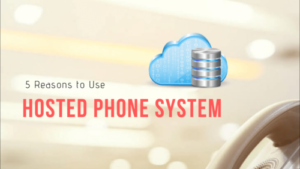Cloud computing brought in a revolutionary wave of new technological advancements that had previously appeared to many as a distant dream.
Cloud computing, a relatively recent development, is rapidly transforming the business world.
It possesses plenty of benefits, including lower IT costs and limitless data access.
There is no longer any business department or division that is unaffected by cloud computing Golden touch.
Accounting and finance are also not resistant to the cloud’s benefits delivery.
Indeed, the accounting and finance sector is one of the most rapidly evolving sectors under the new cloud technology.
It has simultaneously presented new opportunities and created new imperatives.
Tools such as ERP or spreadsheets were subjected to extensive testing and disapproval before being adopted as a standard business tool.
It is natural for new changes to hardwire us, and it is easy to understand that we have our share of reservations.
Accounting professionals who were willing to take the leap and migrate their work to the cloud increased their organisation’s value and their value within it.
Approximately 85% of accounting firms struggle with recruiting and retaining talent. More than half of these firms have resolved to leverage technology to overcome this obstacle.
By implementing modern technology, you can accelerate your business processes and increase employee efficiency.
Contents
Impact of Cloud Computing in Accounting Industry
Benefits of Cloud Accounting
- Flexible Accessibility
- Cost-effectiveness
- Robust Security
- Easy Collaboration
- Reduce Paper works
- Data Backup
- Conclusion
Impact of Cloud Computing in Accounting Industry
The cloud is an infrastructure that enables users to access information via the internet, removing the need for dedicated staff and budgeting for server and IT infrastructure maintenance on-premises.
This results in significant cost savings on the balance sheet’s investment and liability.
The cloud system enables the communication between the accounting department, employees, and clients via various applications and software.
Different businesses opt for different cloud servers based on their size and budget; some opt for dedicated cloud hosting, while others opt for shared cloud hosting.
It appears to be highly beneficial in either case.
Indeed, cloud computing has resulted in an entirely new generation of more intuitive, productive, and responsive applications.
Accountants have historically expected to adapt and navigate non-traditional business practices to perform their duties successfully.
They expected to understand the different risk spheres upon which their customer base built.
To keep accountants reasonable while performing all of these tasks and more, they must be considerate of others and capable of delivering IT solutions.
Cloud computing enables clients to interact virtually with their accountants at any time and accountants to do the same.
They can help from the latest improvements in cloud technology, such as financial data up to an hour ahead of schedule.
Due to the mobility and multiple user access capabilities, data entry can be performed by sales, logistics, and, of course, accountants.
All of this results in accountants being dragged out of the outdated bookkeeping cage and placed in a new position of critical importance in financial advisory and accurate management accounting.
Benefits of Cloud Accounting
Flexible Accessibility
Cloud accounting enables you to access your transactions and critical financial data from any location at any time.
When you use a desktop-based system, you are effectively strapped to the office. All of your software, data, and accounts are stored on a local drive. And this restricts your access to your financial information.
Cloud-based accounting relieves this limitation. Your data and records are securely encrypted and stored on a cloud server.
There is no software to download; you log in and work from any computer with Wi-Fi and an Internet connection.
As a result, regardless of where you are, you can always check the status of your business.
Cost-effectiveness
Working online helps you save money on IT and time by keeping you connected to the business at all times.
Desktop-based systems take a considerable amount of IT hardware, as well as ongoing maintenance. A server is required to host the application software and associated data.
Additionally, you will need to pay an IT professional to maintain both the server and the office network – this can be a high cost.
Online accounting is entirely cloud-based.
You are not required to maintain an expensive IT infrastructure. You can access the software if you’re in the office, working from home, or out at a customer meeting.
You can approve payments and send invoices to customers immediately, saving you time and improving the efficiency of your financial processes.
Robust Security
When you use cloud computing, all of your accounts and records are encrypted.
If you’ve ever used desktop accounting, you’re probably aware of the importance of regularly backing up your work.
Additionally, you will be informed of the need for updates whenever your software provider releases a new version.
Cloud computing eliminates the need for backups and software updates.
You always log into the most current software version, including all the latest features, tax rates, and required reports.
Likewise, your work automatically saved as you work, saving you time and money on time-consuming backup procedures.
Additionally, cloud accounting outperforms desktop accounting in terms of security.
Your data no longer confined to a physical server in your office or the hard drive of your laptop.
All accounting data is encrypted at the point of entry and stored in the cloud.
As a result, the only individuals who have access to your confidential information are you, select members of your team, and advisers.
Easy Collaboration
Collaboration is facilitated by accessibility.
Multiple stakeholders can access online books, which allows for workload sharing.
Small business owners and bookkeepers handle routine accounting tasks such as bank reconciliation and bill payment.
On the other hand, accountants can perform more complex tasks, such as detailed reporting and long-term forecasting and planning.
Cloud accounting software frees accountants from routine tasks, allowing them to focus on more valuable client services.
Reduce Paper works
Cloud accounting enables the vision of a paperless office to become a reality.
Traditional accounting, paperwork, data entry, and financial administration can begin to eat away at your business’s time.
Everything must print and handled manually, which is inefficient, ineffective, and environmentally damaging.
You can significantly decrease your dependence on paper by implementing an online accounting system.
Invoices can be emailed directly to clients, eliminating printing and mailing costs – and expediting the payment process.
Bills and receipts can be scanned and collected directly in your accounting software alongside the associated transactions.
Additionally, because all of your documents are digitised and stored in the cloud, there is no need to retain paper originals, saving space and money on filing and storage.
Data Backup
With desktop software, a hard drive crash or a power surge can result in the complete loss of years of data.
The cloud stores data remotely, removing the possibility of financial information being permanently lost due to unexpected.
Most online software providers perform routine data backups automatically – frequently multiple times per day – and typically on servers located in various locations.
Conclusion
Cloud infrastructures encourage sustainable development by enabling virtual services rather than physical products and hardware, reducing paper waste, and increasing energy efficiency.
It enables employees to work remotely via an internet connection, thereby reducing emissions associated with commuting.
Cloud computing is the future direction, and your business must stay current and operate more efficiently and effectively.
Cloud computing software can help you save time and money in your accounting.







